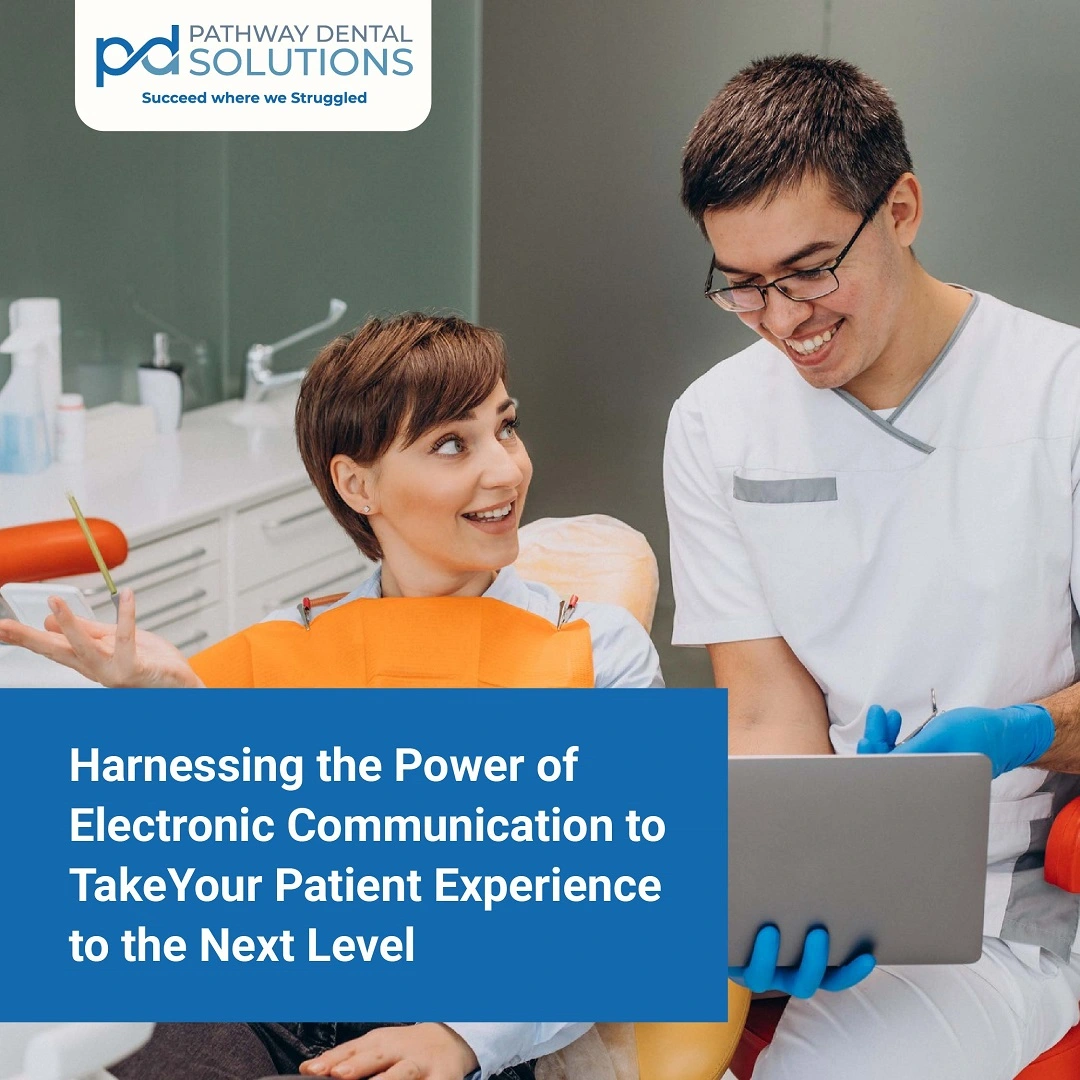
This week for Toolbox Tuesday, we are discussing how electronic communication can actually improve your relationships with your patients when leveraged the correct way.
In today’s digital age, electronic communications play a pivotal role in enhancing patient experience and streamlining healthcare practices. We have emphasized the importance of leveraging alternative methods such as email and text messaging to handle the increasing volume of patient inquiries. Let’s dive into the key points discussed today and explore how electronic communications can make a significant impact on patient care.
Offering alternative methods such as email and text messaging not only improves patient convenience but also ensures that communication channels are accessible around the clock. As we noted, “There should be a way that you communicate with your dentist or doctor at midnight if you wanted to.”
Building Trust and Demonstrating Follow-through
Promptly responding to patient inquiries is paramount. Patients appreciate timely responses and expect consistent communication. By demonstrating follow-through in electronic communications, healthcare practices can build trust and nurture stronger patient relationships. The speakers shared testimonials from satisfied patients who highlighted the practice’s commitment to responsive communication. Also learn The Importance of Addressing Patient Complaints and Suggestions in a Dental Practice.
Meeting Patient Expectations with Multiple Communication Channels
We need to provide patients with multiple options to reach out to their healthcare providers. While phone calls remain a crucial mode of communication, relying solely on them is inadequate, considering the staggering number of inquiries practices receive.
Clear Communication Protocols and Expectation Setting
To avoid frustration and ensure patients feel informed, it is crucial to establish clear communication protocols. The speakers discussed the significance of providing “what to expect” sheets that outline office protocols and minimize surprises. These sheets not only serve as informative resources but also hold the healthcare team accountable. By setting proper expectations and communicating protocols transparently, practices can enhance patient satisfaction and reduce misunderstandings.
Leveraging AI and Technology for Enhanced Communication
In the ever-evolving landscape of healthcare, staying up-to-date with technology is essential. The speakers stressed the importance of leveraging tools like artificial intelligence (AI) to streamline communication. They highlighted that younger generations prefer texting over phone calls and proposed exploring AI as a means to enhance communication efficiency. Examples such as Siri and autocorrect were cited, showcasing how AI can already augment everyday tasks. However, the speakers also emphasized the need to maintain a personal touch in patient communications, ensuring that technology doesn’t overshadow the human connection.
Effective Email Communications and Professionalism
Email communications hold immense potential for efficient and thorough patient interactions. The speakers stressed the significance of proper grammar and professional etiquette in emails, as they directly impact the image of the practice. To ensure consistency and professionalism, the importance of establishing protocols for email communications was discussed. By maintaining a high standard of email correspondence, healthcare practices convey credibility and bolster patient confidence.
Streamlining Billing and Enhancing Patient Understanding
Handling billing questions over email proves advantageous for both patients and healthcare providers. Email allows patients to read and comprehend billing information at their own pace, minimizing confusion. The speakers mentioned that patients appreciate the opportunity to fully understand their financial obligations without feeling rushed or overwhelmed. Electronic communications enable practices to address billing inquiries promptly, resulting in improved patient satisfaction and trust.
The Importance of Personalized Communication
In a world of digital interactions, personalized communication remains paramount. The speakers emphasized the need for customized responses tailored to individual patient needs. Through email and text messaging, healthcare providers can address patients on a personal level, fostering a sense of care and empathy. This personalized approach not only enhances patient experience but can also contribute to improved health outcomes.
Conclusion: Enhancing Patient Care through Electronic Communications
The webinar shed light on the vital role electronic communications play in modern healthcare practices. From offering multiple communication channels to building trust and leveraging AI, there are numerous ways practices can enhance patient care through digital interactions. By prioritizing prompt and consistent communication, establishing clear protocols, and maintaining professionalism, healthcare providers can solidify patient relationships and improve overall satisfaction.
In today’s fast-paced digital age, investing in effective electronic communications is no longer an option but a necessity for healthcare practices seeking to provide the best possible care and experience for their patients.



